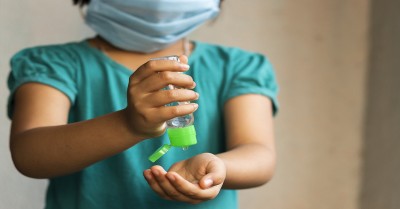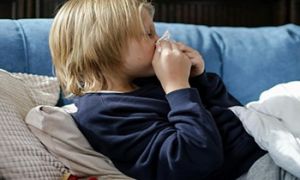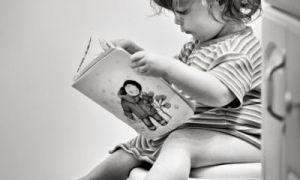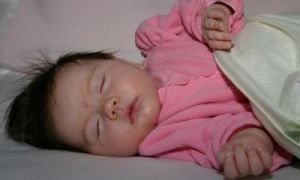Coronavirus (COVID-19) can make you sick with cold-like and flu-like symptoms. The virus can infect children however, they are less likely to have symptoms. Their symptoms are milder and they are less likely to develop severe illness
What is Coronavirus?
Coronavirus (COVID-19) is a new type of coronavirus. Coronaviruses can cause mild illnesses like the common cold or more severe illnesses like Severe Acute Respiratory Syndrome (SARS).
How Does COVID-19 Affect Children?
The virus can infect children however, they are less likely to have symptoms. Their symptoms are milder and they are less likely to develop severe illness. Children dying from COVID-19 is rare.
What Are The Symptoms?
Common symptoms of coronavirus (COVID-19) include:
- symptoms like those of a cold or flu, including runny nose, sneezing, sore throat, cough, aches and pains
- fever
- difficulty breathing
fatigue.
Symptoms might come on very quickly and might last 2-5 days. Recovery from symptoms like tiredness might take several weeks depending on how severe the illness has been.
Symptoms can vary from child to child. Some children might not get any symptoms at all, and other children might get mild symptoms.
If your child has the symptoms above and you’re concerned, here’s what to do:
- Phone the Coronavirus Health Information Line on 1800 020 080 or Healthdirect on 1800 022 222.
- Describe your child’s symptoms, plus anything else that makes you think your child might have coronavirus (COVID-19) – for example, overseas travel or possible contact with an infected person.
- Follow the advice you’re given. This includes advice about staying at home or taking precautions if you’re told to visit your GP, a local hospital or a screening clinic.
If you’re told to visit your GP, make sure to phone ahead and tell the GP clinic about your coronavirus concerns. Some GPs might be able set up a consultation by phone or video.
If you’re told to visit a hospital or screening clinic (which might be located at a hospital), check your state or territory health department website for locations. Also, check whether testing is offered to children at these locations.
What Happens If My Child Tests Positive?
If your child’s test shows that they have COVID-19, they will have to stay in isolation. This may be at home unless the home is not suitable or your child is very sick. Your child must stay in isolation until your local public health unit advises you that your child can leave home and return to school.
How Is It Spread?
Coronavirus (COVID-19) spreads easily through sneezing, coughing and hand contact. The virus can also live on objects that have been in contact with an infected person’s mouth, nose, hands or body fluids. This means the virus can spread if you touch an infected object.
How Is It Prevented?
Hand-washing is one of the simplest and best ways of preventing the spread of illness, including the spread of coronavirus (COVID-19):
- Wet hands with warm water.
- Put soap on hands.
- Rub hands together for 20 seconds. Rub between the fingers, under the fingernails, and on both sides of the hands.
- Rinse hands under clean, running water.
- Let hands air dry or dry them with a paper towel.
- If you’re away from home and there’s no soap and water, your child can use hand sanitiser instead.
Your child should wash hands:
- after coughing, sneezing or blowing their nose
- after using the toilet
- before preparing and eating food
- after being in public places like on public transport
- after being around someone who’s unwell.
It’s important to be a hand-washing and personal hygiene role model. Your child is more likely to have good hygiene if you lead by example.
When your child blows their nose, your child should:
- use disposable tissues
- put used tissues in a bin straight away
- carry a disposable bag for used tissues in case there are no bins nearby
- wash their hands with soap after blowing.
When your child sneezes or coughs, your child should:
- avoid sneezing or coughing into their hands
- use disposable tissues, or cover their mouth with a sleeve or elbow
- wash their hands after sneezing or coughing.
You can also encourage your child to keep their hands away from their eyes, nose and mouth as much as possible. This is how the virus gets into the body.
You can also reduce your risk of catching coronavirus (COVID-19) by staying at least 1.5-2 m away from anyone who’s sneezing or coughing, and avoiding close contact with anyone with the virus.
How is it treated?
There’s currently no specific treatment for coronavirus (COVID-19) that can make it go away more quickly.
If your child is diagnosed with coronavirus (COVID-19) and your child has uncomfortable symptoms, your doctor or another health professional will let you know how to manage the symptoms. This might include:
- paracetamol – for example, Panadol® and Dymadon®
- lots of fluids and rest.
Australian, state and territory health department websites have the latest and most reliable information and advice about coronavirus (COVID-19). You can also call the Coronavirus Health Information Line on 1800 020 080 or Healthdirect on 1800 022 222.
References:
Coronavirus (COVID-19) and children in Australia
Factsheet: COVID-19 and children






